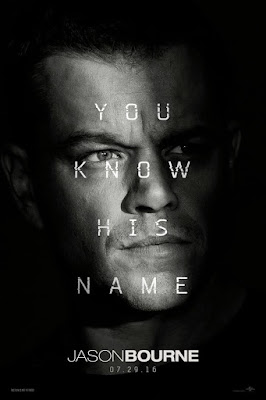Jason Bourne
Matt Damon reunites with Paul Greengrass for this fifth instalment of the Bourne series – a head-spinning, post-Snowden cyber-thriller.
It’s a bravura sequence, a superbly orchestrated symphony of chaos, swathed in the burning ochre glow of street fires, with water cannons and motorbikes shooting across the screen. Twenty-five minutes in we’re exhausted, but the pace doesn’t let up. In globetrotting fashion, the narrative nips from Langley, Virginia, home to the CIA, to Rome, to Berlin, to London, where Paddington becomes the setting for another vertiginously high-octane showdown. Then it’s on to Las Vegas for a monstrous car chase that rivals the madness of both The French Connection and To Live and Die in LA, with added levels of insane collateral damage.
In between the head-spinning action we meet Alicia Vikander’s Heather Lee, a rising star of the CIA whose idealistic demeanour contrasts starkly with the old-school bullying of Tommy Lee Jones’s haggard Agency director Robert Dewey, a man whose face has the texture of hammered granite. Riz Ahmed is excellent as Aaron Kalloor, the Zuckerbergy whizz-kid whose Deep Dream empire is building “a community that is transcending national boundaries” while insisting that “no one will be watching you”, a hollow promise compromised by a murky debt dating back to his startup days.
Meanwhile, Assange-style hackers promise to dump huge caches of sensitive information online and sci-fi-inflected scenes, in which the CIA accesses conversations and computers via mobile phones, invoke the all-too-real spectre of the chilling documentary Citizenfour. This is a world of “full spectrum surveillance” and its countervailing counterpart, wherein the lines between protection and terror are blurred. Against this backdrop, Vincent Cassel’s perma-snarl assassin (referred to as the “Asset”) seems reassuringly uncomplicated.
Amid such visceral spectacle, Damon injects a much needed air of humanity. His speech may be sparse, but his body is expressively talkative, conveying violence, pathos and even tragedy in surprisingly precise fashion. After the joyous monologuing of The Martian, Damon proves that he can keep an audience onside while keeping his lip buttoned. No wonder we keep coming back for more.

Sem comentários:
Enviar um comentário